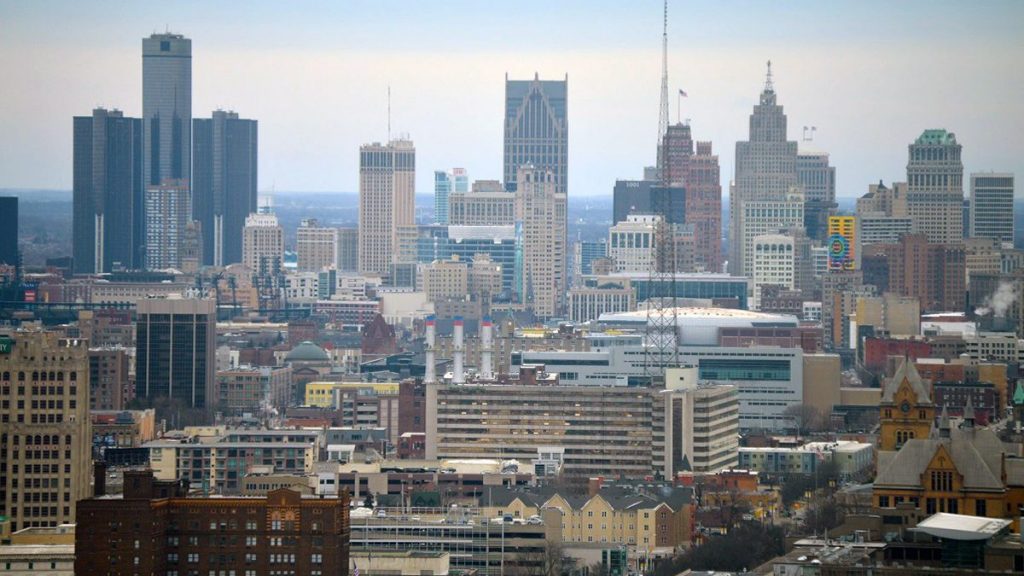New Book “Survival of the City” Says Landscape of America’s Urban Centers is Changing
Harvard Economist David Cutler’s new book says the biggest issues facing cities existed before the pandemic, but COVID-19 has brought them into clearer focus.

The downtown Detroit skyline. Photo credit: Jake Neher, WDET
Cities are perhaps one of humanity’s greatest inventions. They are hubs for creativity, innovation, wealth and connection. However, as the global COVID-19 crisis has redefined our relationship to cities, what does the future of urbanism look like?
“Those were all kind of festering issues for cities, and what COVID did was bring those issues front and center.” –David Cutler, co-author, “Survival of the City”
That’s the question at the center of the new book, “Survival of the City: Living and Thriving In An Age of Isolation. ”
Listen: Harvard Economist David Cutler talks about the future of cities as the pandemic exacerbates existing challenges.
Guest
David Cutler is a professor of applied economics at Harvard University and co-author of the newly released book “Survival of the City: Living and Thriving In An Age of Isolation.” He says most of the big challenges that cities face now aren’t new with the pandemic, but that COVID-19 has exacerbated those issues and brought them into clearer focus.
“Even before COVID, we were having debates about police brutality in city after city, there were fights about gentrification battles,” says Cutler. “Those were all kind of festering issues for cities, and what COVID did was bring those issues front and center.”
He says that new workplace realities — with employers and employees more accustomed to remote work — might change the face of downtown areas and lead to some workers staying remote or finding work closer to home.
“For some cities, this will be catastrophic,” he says. “For some cities it could actually create an opportunity.”
“Some cities are looking for space for scrappy startups and they’ve been priced out,” Cutler explains. “The other possibility is that some business can be turned into housing … The worry is cities where you might not have that capacity always on the ready. So the movement out might cause problems for a while before you have a chance to fix them.”
Trusted, accurate, up-to-date.
WDET strives to make our journalism accessible to everyone. As a public media institution, we maintain our journalistic integrity through independent support from readers like you. If you value WDET as your source of news, music and conversation, please make a gift today.
